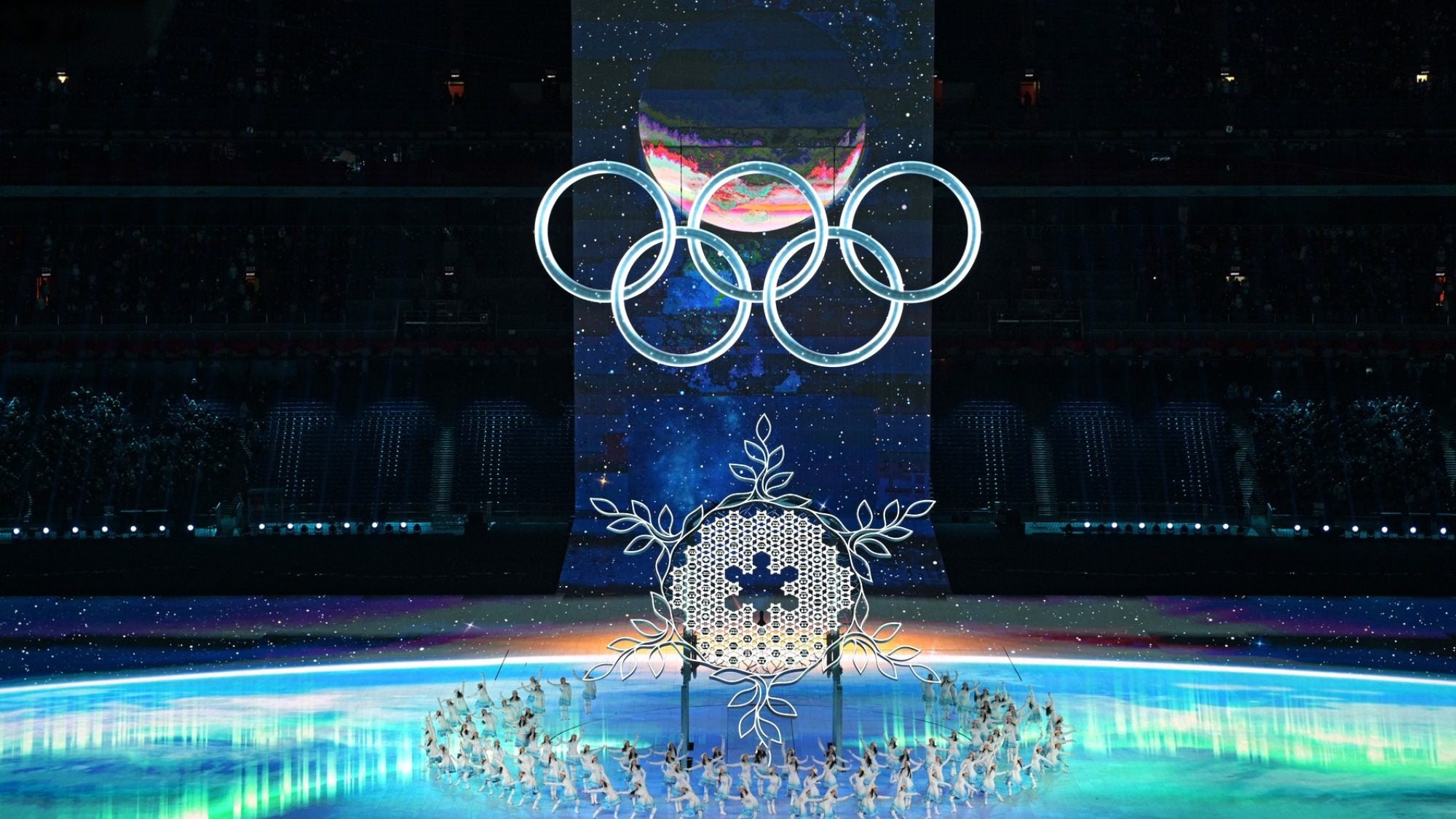
Title: Citizenship Swapping at the Beijing 2022 Winter Olympics
When Eileen Gu, born and raised in the United States, won three medals for China in the freestyle skiing events at the Beijing 2022 Winter Olympic Games, she set off a media frenzy. These were the first Olympics for which China had recruited foreign-born athletes to represent China. While this development seemed sudden and novel, it was the culmination of China’s growing emergence as a destination for global immigration, as well as five years of new policies in the sports world.
Eileen Gu, born in the United States to a single mother who immigrated from China, won three medals representing China in the freestyle skiing events at the Beijing 2022 Winter Olympics. But she was only one among thirty-two foreign-born athletes who represented China—more than half of them American. Her two golds led to China’s lead over the United States in the gold medal count, nine to eight, at the end of the games. China’s pursuit of Olympic medals is part of its plan to strengthen its “soft power” – the power of co-option and attraction – in international relations (as opposed to “hard power” – the use of coercion and payment). The rivalry over soft power is a distinct feature of international relations in East Asia, driven by the fact that both Japan and Korea have autonomy in soft power policies, while their pursuit of hard power is constrained by the United States.
China’s Olympians and Immigration History
Research about citizenship in the Olympic Games has documented a public perception that increasing numbers of athletes have been switching citizenship in order to represent different countries in the Olympics. However, in actuality, the overall proportion of Olympic athletes representing a different country from their country of birth has increased only slightly in the last seventy years. Statistical analysis of 45,000 athletes from 11 countries (not including China) found that the proportion fluctuated between roughly 4 and 9 percent in summer Olympics from 1948 to 2016. While the proportions might not have varied much, the patterns have changed. Before the 1990s, most foreign-born athletes were either Europeans competing for other European or American nations, or colonial subjects competing for their metropole. Beginning in the 1980s, citizenship laws were loosened worldwide as more countries allowed dual citizenship (but not countries in Asia). Foreign-born athletes began to come from more diverse backgrounds, with more of them from Asia and Africa, and fewer athletes following the old colonial lines.
Calculations for the PyeongChang 2018 Winter Olympics found a similar proportion––6 percent of the total. The United States was the biggest sender of athletes at thirty-seven, while South Korea was the biggest receiver at eighteen, a result of a strategy to maximize medals at its own Olympics. Korea tied with Russia for sixth in the total medal count, surpassing Japan (twelfth) and China (fourteenth). The rivalry with Japan and Korea over “soft power” was one factor that pushed China to start recruiting foreign-born athletes for its own Olympics four years later.
China’s foreign-born Olympians, too, reflect China’s immigration history. Most members of the 1936 Olympic soccer team were born in Hong Kong or Southeast Asia, and were playing professionally in Hong Kong (then a British territory). Dutch-born track cyclist Howard Wing (He Haohua) represented China in 1936 and 1948, while Indonesian-born swimmer Wu Chuanyu represented the Republic of China in 1948 and the People’s Republic of China in 1952. China then did not take part in the Olympic Games again until 1980, in protest over the presence of the “Republic of China” (Taiwan).
When the Cultural Revolution (1966-1976) broke out, xenophobia raged as Red Guards attacked and persecuted everyone with foreign connections, including the overseas Chinese, like Wu Chuanyu, who had “returned” (as it was officially labeled) by the hundreds of thousands to aid the establishment of New China. When the era of “reform and opening up to the outside world” was launched in 1978, China was no longer the immigration destination that it had once been. The restrictive Chinese citizenship law, enacted in 1980 and still in force, prohibits dual citizenship and grants automatic citizenship to children of Chinese nationals. Although the law permits naturalization, citizenship has rarely been granted to people lacking Chinese ancestry and is difficult to obtain even for those with it.
In 2008, equestrian Alex Hua Tian’s naturalization, possibly the first of an athlete since the sixties, was likely facilitated by the fact that his mother was Chinese, and he became a Chinese citizen one month before he turned eighteen. He represented China in three-day eventing at the 2008 Olympics. But he was unique: China wanted to have an athlete in every event in its first Olympics, and there were no equestrians on the mainland at the time. Tian went on to represent China at the Olympics again in 2016 and 2020.
Policies Encouraging the Naturalization of Athletes
China’s restrictive citizenship law has become increasingly untenable as its immigrant population has grown larger, drawn by the rapid growth of the Chinese economy. The sports world began attracting immigrants in 2015, when foreign stars were hired by the Chinese soccer Super League at astronomical salaries, leading to calls to naturalize foreign athletes so they could help China qualify for the finals of the FIFA World Cup.
After China won the bid to host the 2022 Winter Olympics in 2015, the combined pressure on soccer and winter Olympic sports to improve their international standing began to produce new policies. An open invitation was issued to non-citizen overseas Chinese to take part in trials for the national men’s and women’s hockey teams, provided they were willing to become Chinese citizens and represent China in international competitions; behind the scenes, invitations were extended to athletes with no Chinese ancestry. Three Chinese-American women were recruited to take part in trials to fill the slot in China’s weakest figure skating event in order to improve medal chances in the team competition. Ultimately, Beverly Zhu (Zhu Yi) was selected. The program was led by two-time Olympic bronze medalist Chen Lu, who justified the plan by stating that Japan and Korea had been recruiting foreign-born athletes.
In 2019, the first professional soccer player gained Chinese citizenship. He was soon followed by a dozen more, including five Brazilians. The Secretary General of the Chinese Football Association explained, “We were a little worried… but fortunately, in China the fans are happy to see a few naturalized players join the Chinese team, as long as they can help strengthen the team.”
The first naturalized Olympian to emerge from the new policies acquired citizenship in 2019 and represented China in the Tokyo Olympics in summer 2021. Nina Schultz, a Canadian citizen, competing under the name Zheng Ninali, finished tenth in the heptathlon event in track and field. All of this happened without changes to immigration or naturalization laws. In 2020, a draft law to create permanent residency (a “green card”) was posted for public comment, in which athletes were explicitly listed as one of the categories eligible on account of “outstanding accomplishments.” But the law was shelved due to the negative response from the public.
Days before the opening ceremony of the Winter Olympics, the Chinese soccer team was eliminated in the Asia qualifier for the 2022 FIFA World Cup, despite fielding three naturalized Brazilians. A few days later, Beverly Zhu fell and stumbled in her segment of the Olympic team figure skating event. Both failures sparked vitriol on Chinese social media, leading some commentators to fear for the future of the naturalization policy.
In addition to Gu and Zhu, there were eighteen foreign-born male hockey players (one of whom was Nina Schultz’s brother Ty), and twelve female hockey players. Some of them told journalists that they had been allowed to retain their original passports and did not renounce their American, Canadian, and Russian citizenship as required by the Chinese citizenship law. When the status of their citizenship became a hot media topic, athletes and spokespersons began answering questions with “no comment,” and websites removed the word “renounced.” While the reaction to Eileen Gu inside China was mostly positive, several social media posts critical of her privileged life went viral, including one that mentioned the lack of evidence that she had renounced her American citizenship.
Toward a More Open China
The lack of an official change in immigration and naturalization policies, and the seeming violation of the prohibition against dual citizenship, suggest that the naturalization of athletes is an experiment limited to the sports world that can be canceled if deemed necessary, even while there are clearly forces propelling China towards greater openness. One month before the opening ceremony, the website of the Chinese embassy in the United States portrayed the recruitment of foreign athletes and sport scientists as the natural result of China’s changing role in the world, arguing that “in the course of progress from a sports power to a sports superpower, China is gradually establishing and improving the credibility of its national sports, and contributing greater Chinese wisdom to a broader vision that is about more than just sports.”
In only five short years, China’s openness to the outside world changed remarkably quickly in contrast with the xenophobia of the previous half century. The worldwide media frenzy set off by Eileen Gu’s victories, and the fact that her thirty sponsors include premier luxury brands based in the United States—such as Estee Lauder, Victoria’s Secret, Tiffany & Co, and Cadillac—suggested that China’s investment in sports is finally paying off by generating the “power of attraction” that is the hallmark of soft power. China may yet become a major destination for immigration and investment, symbolized by its ability to attract star athletes that are the envy of the world—in short, a major player in soft power. This will no doubt spur Japan and Korea to try to maintain their current advantage, since Japanese animation and video games, K-pop, and the national soccer teams in both countries have a degree of influence in global culture that China has not yet matched in any realm.
The rest of the world should be advised to encourage China’s pursuit of soft power through sports, as it is a means of peacefully incorporating China into the international order. Hosting Olympic Games is comparatively trivial in the big picture of international affairs because it lacks consequences as weighty as those attached to, for example, trade agreements and military treaties. Since the days of Ping Pong Diplomacy, sports have provided an alternative to conventional diplomatic channels that China has used to tentatively extend its connections with the outside world, as seen by the recruitment of foreign-born athletes. Global political stability is served by allowing China—and other emerging nations—to host Olympic Games.
…
Susan Brownell is Professor of Anthropology at the University of Missouri-St. Louis and an expert on Chinese sports and Olympic Games. She is the author of Beijing’s Games: What the Olympics Mean to China (2008) and co-author of The Anthropology of Sport: Bodies, Borders, Biopolitics (2018). During the 2022 Winter Olympics, she gave dozens of interviews to major media in the U.S. and countries around the world.
Image Credit: kremlin.ru, CC BY 4.0
More News

Africa accounts for approximately two percent of global air travel. Given the continent’s vast size and large distances between major trade hubs, enhancing intra-African air connectivity will be…

An estimated 7.9 million Venezuelans migrated abroad for the long term under President Nicolás Maduro’s rule as Venezuela’s political, economic, and social crises have deepened. Alongside rising Venezuelan migration, migrants…

Amid stalled U.S. federal climate engagement and intensifying transatlantic climate risks, subnational diplomacy has emerged as a resilient avenue for cooperation. This article proposes a Transatlantic Subnational Resilience Framework (TSRF)…